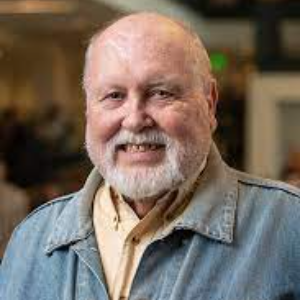Title : The Changing nature of Americas drug crisis
Abstract:
Problem: The United States is undergoing a drug crisis of epic proponent - one that crosses racial, ethnic, and socio-economic/class divides giving new emphasis on prevention and treatment and not just criminal adjudication. Currently, drug-related overdose in the United States (64,000 deaths in 2016) is the leading cause of death surpassing mortality due to human immunodeficiency virus, auto crashes, or firearms (the latter being the highest for any developed nation). The nature of the current crisis adds a new social/clinical dimension forcing a national review of both big pharmacology business practices and America’s “pain free” mentality.
Purpose: Any viable assessment of the current, unique drug crisis needs to look at past social control mechanism that disproportionately targeted minorities and lower class members of society. Substance use disorders have long plagued American society from its colonial origins to the present. It is important to review these control methods to see how they fit the current opioid drug crises.
Methodology: Our assessment focuses on comparative, and often contravening, social, clinical, and legal attempts to address substance-use disorders. This analysis reflects a “societal reaction” perspective.
Results: A major concern during the colonial era and that of the emerging Republic was “rum fever” – a phenomenon that greatly impacted on society with concerns about public drunkenness, and its impact on working conditions and family stability. Indeed, the Prohibition Era began during this time often demarking society into religions opposites with those preaching abstinence (certain Protestant sects; Mormons) on one end of the continuum and those sects that used alcohol in their services (Catholics, Jews) at the other. “Prohibition,” enacted during the early 20th century, was a dire failure ending in repeal. At the same time certain ethnic groups were being singled out for their preferred methods of substance use, notably heroin and marijuana, leading to laws prohibiting their use in 1914 and 1937 respectively. From the onset, these harsh laws were directed specifically to America’s minority populations, notably Blacks, Hispanics, Asians, and American Indians. The double-standard reflecting the enforcement of drug laws became clearer during the 1970s and beyond with cocaine laws which coincided with President Nixon’s “War on Drugs” –which continues to the present. Here, differential adjudication was doled out for “crack” cocaine, the form of the substance presented to the lower-classes and people-of-color, versus “powder” cocaine – the form used predominately by middle and upper class Anglos. America’s prisons were overflowing with minorities serving long felony sentences for drug violations while Anglos often received misdemeanor or violation-type citations with little or no jail time. Changes in addressing drug abuse did not come about until the current “opioid” crisis when a substantial proportion of drug overdoses reflected Anglos. Instead of attempting to escape hopelessness like those in the ghettos and barrios, middle-class Anglos were inadvertently addicted to pain medications which were widely prescribed as non-addictive. Now big pharmacologic companies were seen as the main culprit with society now focusing on prevention and treatment for this population while continuing to provide harsh criminal sanctions for minorities. The challenge for law enforcement agencies, in the highly decentralized American system, is to discern between “criminal adjudication” and “treatment and preventive” interventions. As in the past, the street-level “offender” usually is also a “user” selling to fuel his/her own habit. Another major problem is that America has traditionally held big corporations to a lesser standard regarding culpability than organized criminal groups with “cease and desist orders,” often without having to admit quilt, for the former and harsh criminal sentences for the latter (e.g. USA’s RICO standards). Again, treatment is often associated with White, middle-class defendants while defendants of color still received prison sentences.




